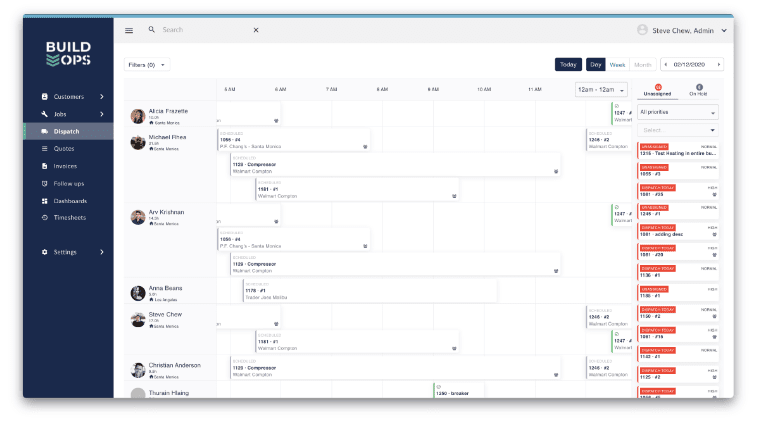Efficiently optimizing truck loads is a crucial aspect of the logistics industry. Maximizing the cargo a truck can carry not only saves money but also reduces fuel consumption and environmental impact. To achieve this optimization, companies must employ effective strategies and best practices.
Here, we will discuss about the top tips for efficiently optimizing truck loads.
-
Invest in Load Planning Software
Modern technology has revolutionized the logistics industry. Load planning software is a valuable tool that can help streamline the process of optimizing truck loads. These software solutions consider various factors such as cargo weight, volume, dimensions, and delivery schedules to determine the most efficient load configuration.
By automating this process, you can minimize errors and save time. Additionally, you can find loads available for truckers through these software solutions, further optimizing your operations.
-
Prioritize Cargo Weight Distribution
Balancing the weight distribution of cargo in a truck is crucial for safety and efficiency. Uneven weight distribution can affect a truck’s stability and handling, increasing the risk of accidents. To optimize loads, ensure that heavy items are evenly distributed throughout the trailer. Use weight scales and load cells to accurately measure and distribute weight.
-
Consider Trailer Dimensions
Different trailers come in various shapes and sizes. To optimize truck loads efficiently, it’s essential to match the right trailer with the cargo. Consider the dimensions of both the trailer and the goods, ensuring that the cargo fits snugly without wasted space. Using the appropriate trailer type (dry van, flatbed, refrigerated, etc.) can significantly impact load optimization.
-
Use Pallets and Containers
Using pallets and containers to pack cargo can greatly enhance load optimization. Standard-sized pallets and containers help maximize available space and make loading and unloading more efficient. Additionally, they can improve cargo security and reduce the risk of damage during transit.
-
Implement the Last-In-First-Out (LIFO) Principle
To ensure that goods are delivered in a timely manner and avoid unnecessary handling, consider adopting the LIFO principle. This means loading the items that will be delivered last onto the truck first. By doing this, you minimize the need to reposition cargo during unloading, saving time and labor costs.
-
Combine Shipments
Whenever possible, combine multiple shipments heading in the same direction. Consolidating shipments reduces the number of trucks needed and optimizes load efficiency. This approach not only saves on transportation costs but also reduces carbon emissions and congestion on the roads.
-
Regularly Maintain Equipment
Maintaining trucks and trailers is essential for load optimization. Properly inflated tires, well-maintained suspension systems, and regularly serviced engines can improve fuel efficiency and ensure that the truck can handle maximum payloads safely.
-
Train Your Team
Efficient load optimization requires knowledgeable and skilled personnel. Train your team in proper load planning and cargo handling techniques. This investment in your workforce will pay off in terms of safer operations, fewer errors, and improved efficiency.
-
Monitor and Adapt
The logistics industry is dynamic, and circumstances can change rapidly. Continuously monitor your load optimization strategies and adapt them as necessary. By staying flexible and responsive to changing conditions, you can maintain efficiency and competitiveness.
Conclusion
Efficiently optimizing truck loads is essential for the success of any logistics operation. By investing in technology, prioritizing weight distribution, considering trailer dimensions, and implementing smart strategies, you can maximize cargo capacity while minimizing costs and environmental impact.
Regular maintenance and a well-trained team are also crucial components of successful load optimization. By following these top tips, you can streamline your logistics processes and stay ahead in the competitive world of transportation.
![]()













